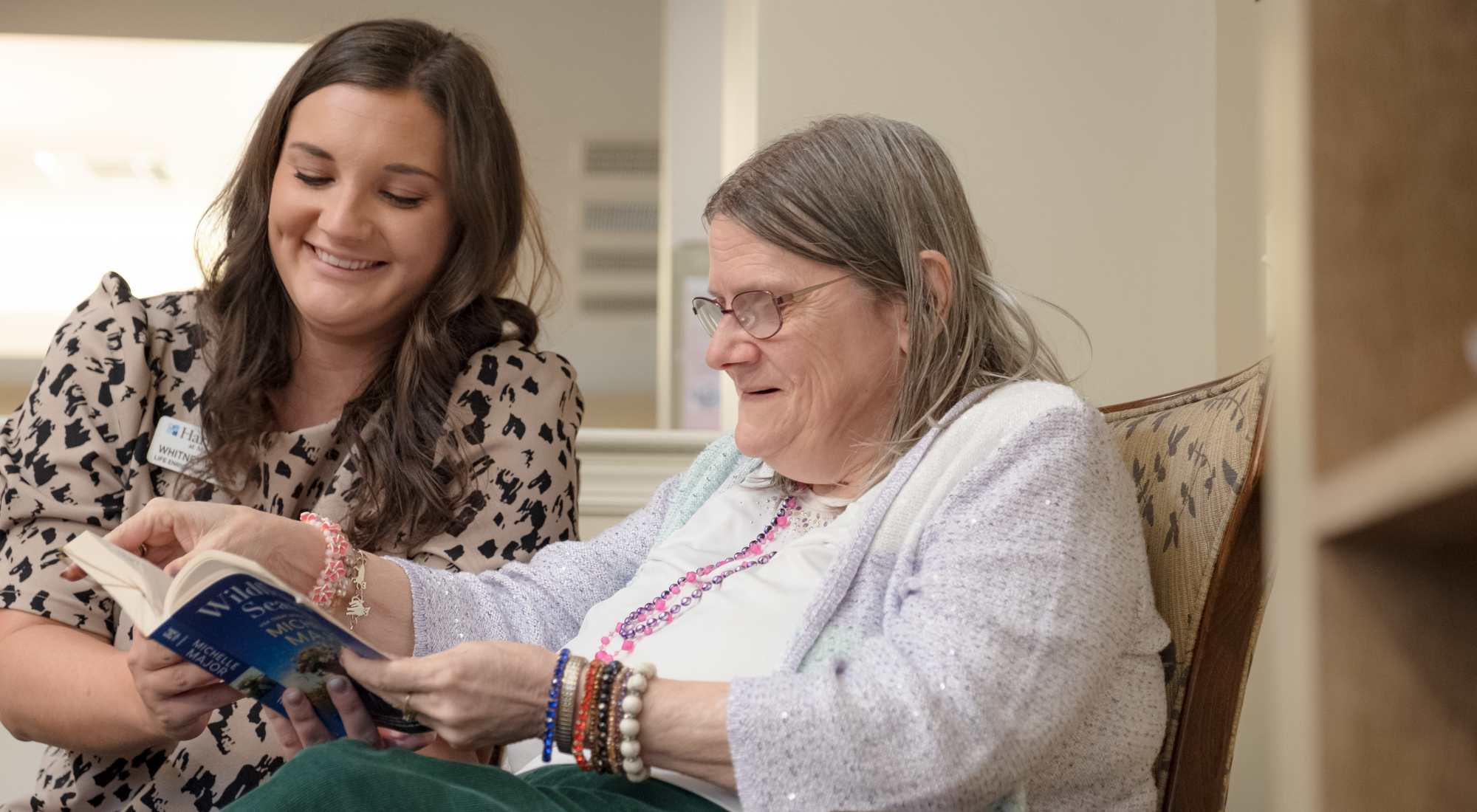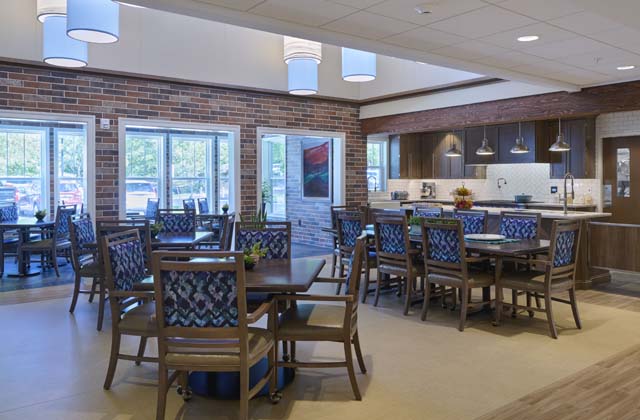Exploring the Value of Memory Care Solutions in Small Memory Treatment Homes
Memory treatment services play a vital role in improving the lives of individuals with cognitive disabilities. In small memory care homes, the emphasis moves to personalized treatment customized per local's special requirements. These intimate settings cultivate much deeper connections and a supportive neighborhood. The concern continues to be: how do these atmospheres particularly contribute to the psychological wellness of both homeowners and their family members? Understanding this dynamic discloses the true value of specialized memory treatment.
Recognizing Memory Care and Its Importance
Memory treatment is a vital part in resolving the one-of-a-kind requirements of people with cognitive impairments, such as dementia and Alzheimer's disease. This specific kind of care focuses on creating a supportive and safe atmosphere tailored to the obstacles faced by these individuals. Memory treatment centers employ qualified staff who recognize the intricacies of cognitive decline, supplying individualized treatment that promotes self-respect and respect.Activities and routines are developed to promote memory retention and cognitive function while ensuring safety and security and protection. Furthermore, memory treatment emphasizes social interaction, which can relieve feelings of seclusion and enhance emotional health. By fostering a structured setting, people can browse their every day lives with even more self-confidence. Comprehending the relevance of memory care discloses its role in improving lifestyle, enabling individuals to keep as much self-reliance as feasible while getting the assistance they need.

The Advantages of Smaller Memory Care Residences
Smaller sized memory care homes provide a more intimate setting that can noticeably enhance the quality of care for citizens. With less citizens, staff participants can develop more powerful relationships, cultivating trust fund and emotional links. This customized focus usually brings about improved interaction, making it much easier for caregivers to comprehend and meet the distinct needs of each resident. Additionally, smaller sized settings typically lower stressors and interruptions, promoting a calming ambience conducive to memory retention and psychological well-being. The design of smaller homes frequently urges socialization among citizens, enabling meaningful interactions that can deal with feelings of seclusion. These homes can adjust a lot more swiftly to modifications in care demands, making certain that locals obtain timely assistance - small memory carehomes Charlotte. Overall, the customized attention, lowered stress, and boosted social chances discovered in smaller memory treatment homes produce a caring setting that sustains both cognitive function and psychological health
Personalized Care Program for Individual Needs
Individualized care strategies are vital in resolving the unique demands of individuals in memory treatment. These plans typically consist of tailored support methods that boost daily living and promote wellness. Furthermore, individualized task engagement helps homeowners attach with their passions, fostering a feeling of objective and joy.
Tailored Assistance Approaches
When establishing tailored support techniques in memory care services, understanding the distinct demands of each person is essential. These approaches entail creating tailored treatment strategies that provide to the details demands, preferences, and abilities of citizens. By examining cognitive feature, psychological wellness, and physical health and wellness, caregivers can create effective treatments that advertise comfort and freedom - small memory carehomes Charlotte. This customized strategy warranties that each citizen gets suitable support, improving their quality of life. Regular evaluations and adjustments to these strategies are essential, as they enable caretakers to respond proactively to transforming requirements. In addition, engaging member of the family in the planning process promotes a collaborative environment, enhancing the support network for people with memory obstacles. Eventually, customized support techniques are essential for delivering efficient and thoughtful memory treatment
Embellished Activity Interaction
Creating meaningful engagement via personalized tasks is crucial in memory treatment solutions. Memory treatment homes focus on personalized care plans that provide to the one-of-a-kind requirements and choices of each citizen. These strategies usually include tasks tailored to residents' passions, capabilities, and cognitive degrees, enhancing their sense of objective and self-respect. By integrating acquainted routines, leisure activities, and social communications, caregivers can boost cognitive feature and emotional well-being. Personalized task engagement not only fosters a supportive atmosphere but also motivates residents to preserve their independence. The active involvement in these tailored activities can bring about boosted state of mind and reduced anxiousness, enhancing the relevance of an alternative method in memory treatment that recognizes each individual's journey and one-of-a-kind experiences.
Developing a Supportive Neighborhood Environment
While cultivating an encouraging neighborhood atmosphere is important for those with memory treatment demands, it needs willful design and thoughtful engagement. Producing such an environment includes a combination of physical area and social links. Small memory care homes can profit significantly from designs that motivate social interaction, such as open usual areas and relaxing gathering areas. These layouts advertise a feeling of belonging and safety and security for residents.Moreover, personnel play an essential function in cultivating this setting. Training caregivers to focus on empathy and active listening improves relationships and cultivates trust. On top of that, including households in treatment plans and area activities can strengthen bonds and develop a network of assistance.
Enhancing Social Interaction and Tasks
Effective social interaction and tasks are necessary for boosting the wellness of homeowners in memory care homes. These interactions not just foster a sense of belonging yet likewise stimulate cognitive functions, which can favorably impact memory retention. Little memory treatment homes frequently offer personalized programs customized to the special rate of interests and abilities of each resident, allowing for even more reliable and purposeful engagement.Activities such as art treatment, songs sessions, and group video games encourage residents to connect with one another, advertising relationships and minimizing sensations of isolation. Additionally, integrating outside tasks, such as horticulture or nature strolls, can improve state of mind and overall health.These enhancing experiences help residents keep a sense of function and delight in their lives. By developing an environment that focuses on social interaction, small memory care homes substantially add to the emotional and psychological wellness of their residents, ensuring they really feel valued and supported in their trip.
Supporting Households With the Journey
As family members navigate the challenges of looking after a loved one with memory disability, the support supplied by tiny memory care homes ends up being vital. small memory carehomes Charlotte. These homes use not just specific treatment for personalized memory care citizens however also valuable sources for family members. By promoting a joint atmosphere, tiny memory care homes motivate open interaction, allowing family members to share concerns and share experiences.Support groups and instructional workshops are commonly offered, outfitting households with knowledge and strategies to handle the intricacies of amnesia. Such campaigns assist reduce sensations of seclusion, as households get in touch with others encountering similar situations.Moreover, tiny memory treatment homes usually offer personalized updates on citizens' well-being, easing family members' worries and aiding them feel entailed in their liked one's daily life. This holistic method to sustain not just enhances the top quality of treatment for locals however likewise equips family members throughout their psychological journey
The Impact of Specialized Personnel Educating on Treatment Quality
In small memory care homes, the high quality of care is greatly influenced by the training and proficiency of the staff. Specialized training gears up caretakers with vital skills to recognize and deal with the one-of-a-kind demands of homeowners with memory disabilities. Knowledge of dementia-related actions, effective interaction strategies, and person-centered care methods improves the capability of staff to create a supportive environment.Moreover, trained personnel are better prepared to take care of tough scenarios, lowering the likelihood of disputes and making certain a calmer environment. This training fosters a much deeper emotional connection between caregivers and locals, promoting trust and boosting total well-being. In addition, specialized training can bring about greater task fulfillment among caregivers, reducing turn over rates and giving continuity of treatment for citizens. Ultimately, the financial investment in personnel education and learning substantially boosts the standard of care, which is important for improving the quality of life for people in small memory treatment homes.

Often Asked Inquiries
How Do I Pick the Right Memory Treatment Home for My Liked One?
Picking the right memory care home entails reviewing individual demands, seeing centers, assessing staff experience, comprehending care alternatives, considering place, comparing prices, and looking for suggestions. Each element plays an important duty in ensuring optimal treatment.
What Is the Price Distinction In Between Small and Big Memory Treatment Facilities?
The price distinction between little and big memory care facilities can vary significantly. Generally, tiny homes might provide more tailored care at a greater per-person price, while bigger centers usually offer a lot more features at a lower general price.
Exactly How Frequently Can Families Browse Through Their Loved Ones in Memory Treatment Houses?
Families can typically see their enjoyed ones in memory care homes as often as wanted, with many facilities motivating regular sees to keep connections and support psychological well-being, though specific policies may differ by home.
What Specific Activities Are Used in Tiny Memory Treatment Residences?
Small memory treatment homes usually supply tasks like crafts and arts, songs treatment, gardening, exercise courses, and cognitive video games. These tasks are designed to involve residents, stimulate their minds, and advertise social communication amongst them.
Exist Any Age Constraints for Residents in Memory Care Facilities?
Age constraints for residents in memory care facilities normally differ by location and individual facility plans. Typically, these homes accommodate older adults, often needing locals to be at the very least 55 or 60 years old. In little memory treatment homes, the focus changes to individualized care customized to each resident's unique needs. Memory treatment centers utilize trained staff who recognize the complexities of cognitive decline, supplying individualized treatment that promotes dignity and respect.Activities and regimens are created to promote memory retention and cognitive feature while ensuring safety and security. Smaller sized memory treatment homes provide a more intimate setting that can substantially improve the high quality of treatment for residents. Memory care homes focus on customized treatment plans that cater to the one-of-a-kind requirements and preferences of each citizen. As families browse the challenges of caring for a liked one with memory disability, the assistance provided by little memory care homes becomes crucial.